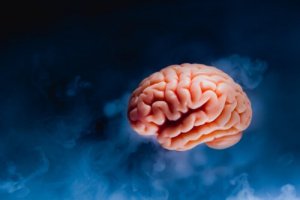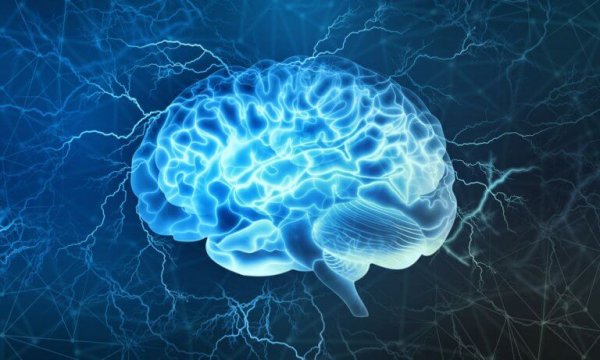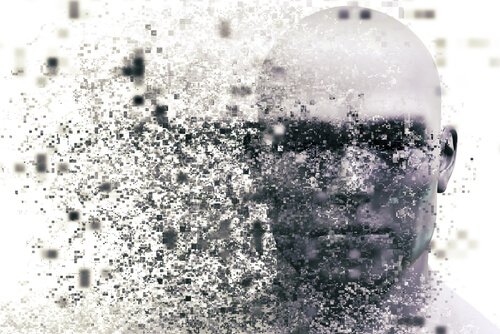Brain Tsunami: What Goes on in Your Brain Before You Die


Written and verified by the psychologist Gema Sánchez Cuevas
But this pioneering study, called “Terminal spreading depolarization and electrical silence in brain death,” published in the journal, Annals of Neurology, actually made two big discoveries.
First, they found that our consciousness can stay active minutes longer than the rest of the body. Secondly, they found that this delay comes along with a higher chance that we can reverse the brain death process during those few minutes of active consciousness-inactive body.
The patient sample
The German and US team of neurologists took nine patients as a sample. They came from Germany (Berlin) and the US (Cincinnati). They all had irreversible brain damage from traffic accidents, strokes, or heart attacks.
That’s why doctors and researchers all had a do-not-resuscitate order with these patients. But for it to be okay not to revive them if they needed it, the researchers had to get prior consent from the patients’ relatives.

How they studied the brain tsunami
They wanted to study brain activity, so they put electrodes on the surface of the brain. The main goal here was to figure out all the things that came into play with brain death. They also wanted to know what neurological events took place during these times.
And they really did it! They managed to directly observe this so-called “brain tsunami.” They observed the wave of electrical discharges that go across the whole brain and cause irreparable damage. It’s the beginning of the end for our brain cells. It’s the exact moment when they turn off forever, leading to an unavoidable death.
Consciousness without a heartbeat
A brain tsunami can even happen 5 minutes after your heart has stopped beating. So it seems like even without a heartbeat, our neurons can keep on working. But once your heart stops, neurons start to slowly lose their electrochemical potential. This is a phenomenon that scientists call neuronal depolarization.
Why? Because our neurons need oxygen to keep on working properly. When they stop receiving that fuel because blood isn’t getting to the brain, they use energy reserves instead. That’s how they can keep on working for a few minutes before they completely shut off.
“After circulatory arrest, spreading depolarization marks the loss of stored electrochemical energy in brain cells and the onset of toxic processes that eventually lead to death. Importantly, it is reversible – up to a point – when the circulation is restored.”
-Jens Dreier-
This slow decrease in potential leads to a series of toxic processes. These eventually lead to necrosis and then to cellular death. But as Dr. Jens Dreier (the head of the study) says, if you can start blood circulation again, you can reverse the process.
This is why the experts concluded that there’s a similarity between brain death for animals and humans. They also said that there’s a period of time when it’s theoretically possible to bring the brain to a functioning state.

Why their discovery is so important
The brain is one of the human organs that we still know the least about. But over the last few decades there have been a lot of big steps forward, especially thanks to neuroimaging techniques. Their big discovery might “lead to improved diagnostic and treatment procedures in the future,” as Jens Dreier himself has said.
According to the Department of Surgery at the University of Miami (United States), brain death is “the irreversible cessation of all brain functions.” But right now scientists aren’t 100% sure how to diagnose it. They also don’t know at exactly what moment we lose our consciousness before death.
That’s why this research has been such an important step forward. It could be really helpful for developing strategies for heart attacks and cerebrovascular accidents (CVA). The results of this pioneering research have given us some amazing, hopeful information about the neurobiology of death. So, can we save someone who just had a heart attack from brain death?
But this pioneering study, called “Terminal spreading depolarization and electrical silence in brain death,” published in the journal, Annals of Neurology, actually made two big discoveries.
First, they found that our consciousness can stay active minutes longer than the rest of the body. Secondly, they found that this delay comes along with a higher chance that we can reverse the brain death process during those few minutes of active consciousness-inactive body.
The patient sample
The German and US team of neurologists took nine patients as a sample. They came from Germany (Berlin) and the US (Cincinnati). They all had irreversible brain damage from traffic accidents, strokes, or heart attacks.
That’s why doctors and researchers all had a do-not-resuscitate order with these patients. But for it to be okay not to revive them if they needed it, the researchers had to get prior consent from the patients’ relatives.

How they studied the brain tsunami
They wanted to study brain activity, so they put electrodes on the surface of the brain. The main goal here was to figure out all the things that came into play with brain death. They also wanted to know what neurological events took place during these times.
And they really did it! They managed to directly observe this so-called “brain tsunami.” They observed the wave of electrical discharges that go across the whole brain and cause irreparable damage. It’s the beginning of the end for our brain cells. It’s the exact moment when they turn off forever, leading to an unavoidable death.
Consciousness without a heartbeat
A brain tsunami can even happen 5 minutes after your heart has stopped beating. So it seems like even without a heartbeat, our neurons can keep on working. But once your heart stops, neurons start to slowly lose their electrochemical potential. This is a phenomenon that scientists call neuronal depolarization.
Why? Because our neurons need oxygen to keep on working properly. When they stop receiving that fuel because blood isn’t getting to the brain, they use energy reserves instead. That’s how they can keep on working for a few minutes before they completely shut off.
“After circulatory arrest, spreading depolarization marks the loss of stored electrochemical energy in brain cells and the onset of toxic processes that eventually lead to death. Importantly, it is reversible – up to a point – when the circulation is restored.”
-Jens Dreier-
This slow decrease in potential leads to a series of toxic processes. These eventually lead to necrosis and then to cellular death. But as Dr. Jens Dreier (the head of the study) says, if you can start blood circulation again, you can reverse the process.
This is why the experts concluded that there’s a similarity between brain death for animals and humans. They also said that there’s a period of time when it’s theoretically possible to bring the brain to a functioning state.

Why their discovery is so important
The brain is one of the human organs that we still know the least about. But over the last few decades there have been a lot of big steps forward, especially thanks to neuroimaging techniques. Their big discovery might “lead to improved diagnostic and treatment procedures in the future,” as Jens Dreier himself has said.
According to the Department of Surgery at the University of Miami (United States), brain death is “the irreversible cessation of all brain functions.” But right now scientists aren’t 100% sure how to diagnose it. They also don’t know at exactly what moment we lose our consciousness before death.
That’s why this research has been such an important step forward. It could be really helpful for developing strategies for heart attacks and cerebrovascular accidents (CVA). The results of this pioneering research have given us some amazing, hopeful information about the neurobiology of death. So, can we save someone who just had a heart attack from brain death?
This text is provided for informational purposes only and does not replace consultation with a professional. If in doubt, consult your specialist.







